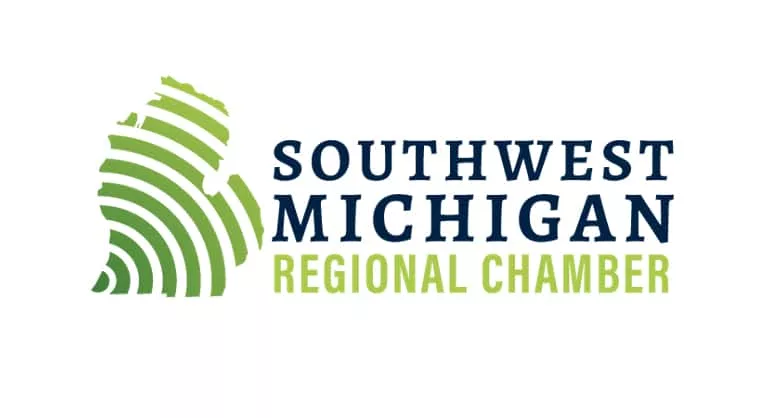Those of us old enough, remember a movie decades ago called “Mr. Smith Goes to Washington,” when Jimmy Stewart riled up the Senate. In a more up-to-date variation on that theme, the Southwest Michigan Regional Chamber was afforded strong representation at the State Capitol in Lansing today when its Board Chair Mark Lemoine traveled there to testify before the Legislature’s newly formed Joint Select Committee on the COVID-19 Pandemic.
When Arthur Havlicek took the reins as new President of the Southwest Michigan Regional Chamber, he and his board promised to give area businesses a voice at the table on the state level and today, they followed through with flying colors on that promise.
Just one day after Michigan Gov. Gretchen Whitmer lifted the state’s “Stay Home” order, Chamber Board Chair Lemoine testified in front of the new Joint Select Committee, focusing on the deep frustrations felt by Southwest Michigan business owners throughout the shutdown, as well as the frustrations of thousands of business owners who are still unable to reopen due to continued restrictions.
Lemoine, who along with his wife Karla owns and operates the Coloma/St. Joseph KOA Holiday campground, is no stranger to Lansing. Prior to becoming a business-owner himself, Lemoine had a 24-year career in the public arena which included time as staff in the Michigan Senate and in the government affairs departments of several recognizable entities including Meijer, The Grand Rapids Area Chamber, and Spectrum Health.
In 2019, his campground hosted 13,300 guests from all 50 states and 15 international countries. In addition to providing accommodations, they also offer federally designated essential services such as groceries, take-out food service, laundromats, and propane. Due to these essential services, Lemoine’s campground never fully closed. However, his industry nonetheless fell victim to the maelstrom of mandates and, even with his 24-year career in public policy, he found deciphering the restrictions to be incredibly difficult.
In his testimony, Lemoine said, “The biggest restriction experienced by our industry isn’t even in the orders itself, but in the FAQ documents which have prohibited ‘recreational camping’ for ‘non COVID-19-related purposes.’” He added, “This creates a burden that appears to require private RV park and campground businesses to discriminate among their guests and imposes an expectation that we judge the validity of a guest’s purpose for leaving their home and coming to us.”
Up until yesterday, hotels and motels had been allowed to serve anyone while RV parks and campgrounds had been limited to serve only “critical infrastructure workers” or “otherwise needy individuals.” Other outdoor businesses such as golf courses and marinas were permitted to reopen before ‘recreational’ camping was allowed.
Lemoine argues, “The first exception to all of the “Stay Home” orders allow individuals to leave their homes and travel as necessary, ‘to engage in outdoor recreational activity, consistent with remaining at least six feet from people from outside the individual’s household,'” contending, “For 78.8 million American households, that is also the definition of camping.”
Sen. Kim LaSata, who serves on the committee, asked Lemoine about the Chamber’s perspective on how these executive orders have affected the Southwest Michigan economy as a whole. Lemoine said as a “microcosm of the state’s economy,” Southwest Michigan has been greatly impacted. Specifically, he pointed to tourism and our proximity to the border as unique challenges for our region.
Lemoine says, “We’ve begun to see money pour out of Michigan, across the border, and into Indiana,” and adds, “The money is leaving the state instead of being spent here where the same exact work could occur safely.”
Despite most of the state getting the greenlight to resume operations, many businesses are still under strict orders to remain closed. Such businesses include indoor theaters and performance venues; indoor gyms, fitness centers and recreation areas; hair, nail and tanning salons, tattoo parlors and spas; and, casinos licensed by the Michigan Gaming Control Board.
Lemoine told the Committee, “While I am glad my business can now re-open, my heart goes out to the thousands of Michiganders who remain unemployed, to the individuals struggling with mental health due to recent events, and to the small business owners who are still prevented from earning a living, providing for their families.”
State Rep. Pauline Wendzel, who was not part of the committee hearing but had met with Mr. Lemoine earlier in the day, had this to say: “I want to thank Mark for coming to Lansing and telling his story. Since the initial lockdown, small business owners have been confused and left in the dark while their livelihoods hung in the balance. I’m pleased the governor has lifted the stay home order and that our local small businesses can get back on their feet. As we begin to return to normal safely, I will continue advocating for Berrien County small business owners and all of their employees.”
Chamber President Arthur Havlicek echoed these sentiments, adding he appreciated Mr. Lemoine’s willingness to articulate these difficult topics at the statewide level, noting, “Michigan may be re-opening, but the advocacy work is far from done. Our Chamber will continue to work with elected leaders to give Southwest Michigan businesses a voice in Lansing and ensure a swift economic recovery for our area.”






